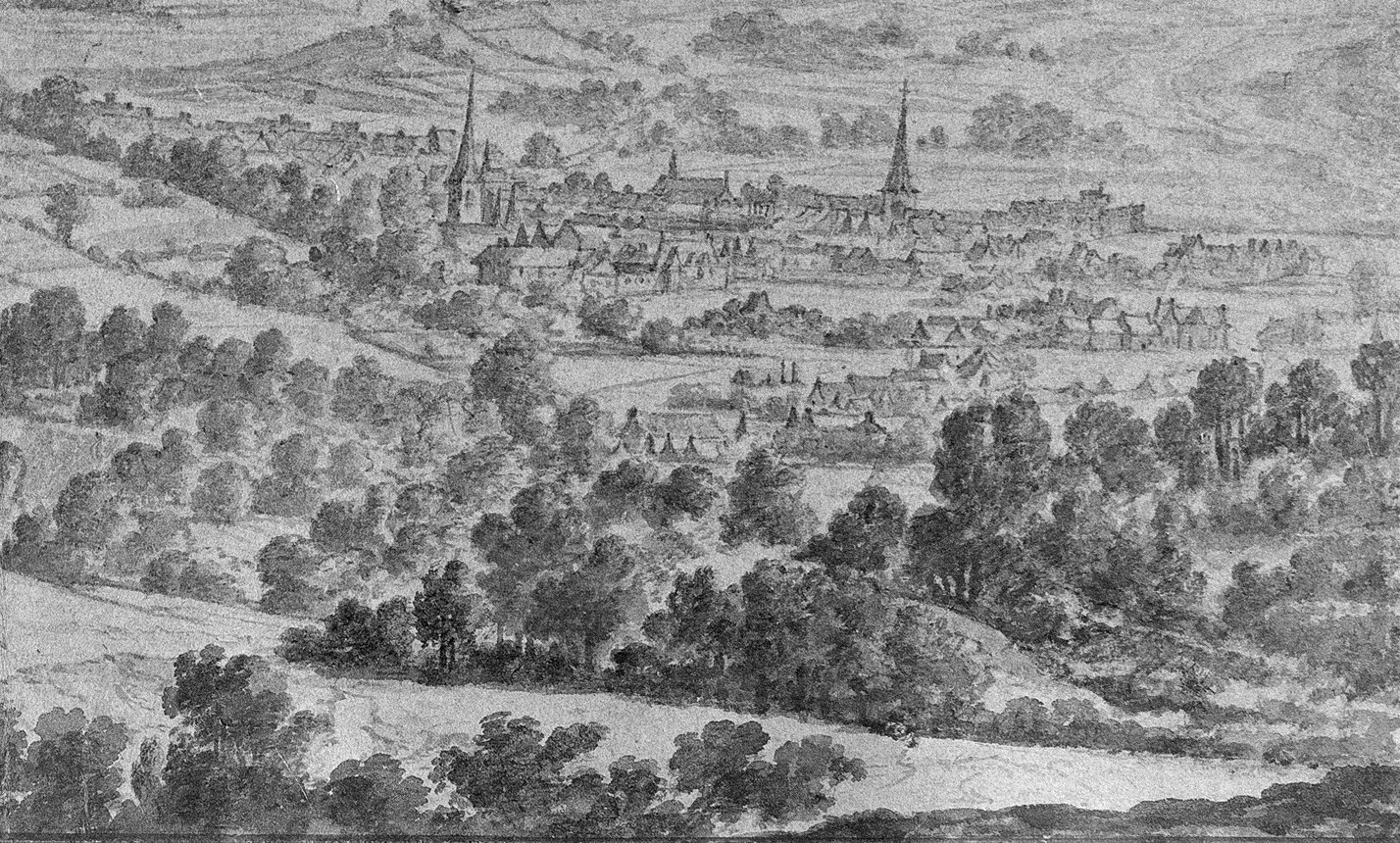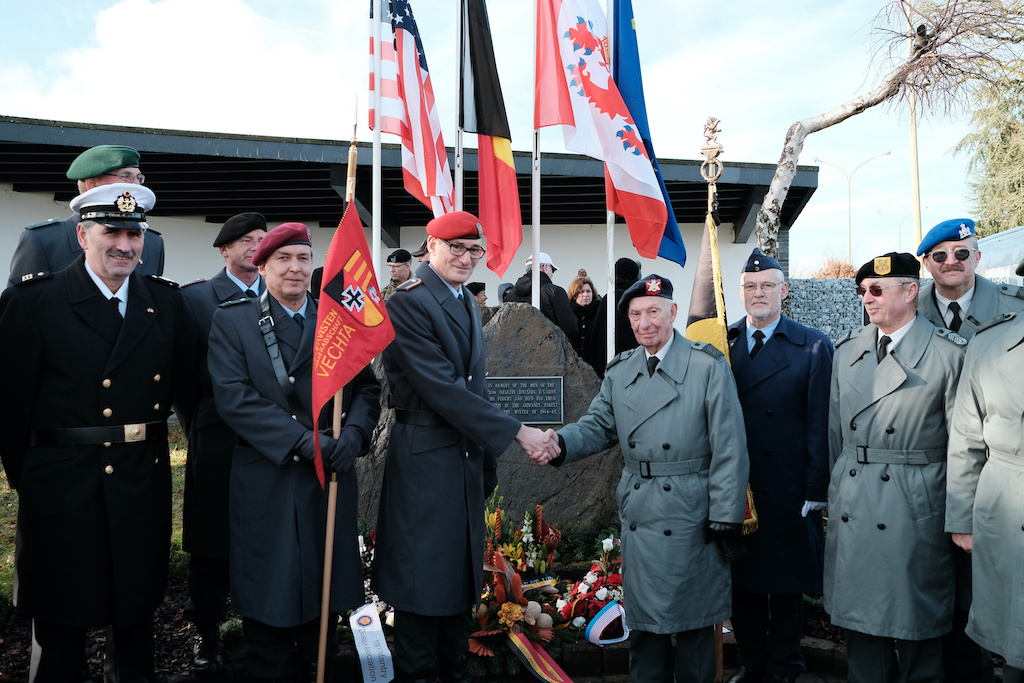For the first time since the end of the Second World War, German reservists in uniform took part in the commemoration ceremony in Sankt Vith. This occurred upon the suggestion of the Friends of the Reservists Eupen-Malmedy-Sankt Vith, namely its coordinator Marcel Vaessen. The two organisations have been on friendly terms for several years. The contact was established through a military history excursion of the Vechta reservists to Belgium, where Marcel Vaessen acted as speaker.
It was by no means a matter of course to obtain permission to officially join the Belgian reservists and an American guard of honour in Bundeswehr uniform to set a sign of today’s solidarity. There was scepticism on the part of the Bundeswehr whether Germans in uniform could be perceived as insensitive towards history, the victims and former enemies of war. Yet, in retrospect, on the contrary, we were warmly welcomed by all concerned. Mayor Grommes emphasised in his speeches the importance of our presence as a symbol of international understanding, peace, and European partnership. This is obviously how those present and the public saw and supported it. The picture, which was even published on the front page of the Grenz-Echo, serves as proof of this: A German and an (East) Belgian reservist shaking hands in Sankt Vith in front of the memorial stone for the (American) fallen of the Battle of the Bulge.
We are grateful and pleased that we reservists from Vechta maintain such a close relationship with our East Belgian comrades. As Chairman of the Vechta RK (reservists’ comradeship) and as a native of Aachen, this is a matter close to my heart, which I was able to pass on to my comrades from Vechta, in northern Germany. About 15 years ago, I moved to Lower Saxony with my family, for professional reasons. As the saying goes: ‘You only learn to appreciate what you no longer possess.’ I miss not only my hometown of Aachen, but also this special situation in the border triangle. The European flair, the special attitude to life, the diversity, and yet intimacy. My affinity with East Belgium in particular probably stems from the fact that I lived in Moresnet and Kelmis when I was a child. I don’t have many memories of that period because I was too young, but the stories my parents and siblings told me about our time there sparked this affection.
East Belgium did not have an easy history as a minority and that is why I admire it all the more – for the fact that East Belgians have preserved their culture and way of life and are loyal Belgians, that they maintain their mother tongue while often speaking three languages, that they are open to their inner-Belgian and European neighbours while still maintaining their independence. That sounds like a declaration of love – it is, because for me East Belgium is the true Europe!
Alexander Esser, Reserve NCO
Chairman of the German Armed Forces Reservists’ Comradeship Vechta

